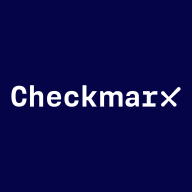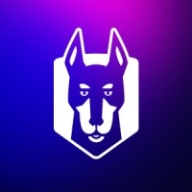

Snyk and Checkmarx are competing in the security software category, focusing on vulnerability detection and security checks. Snyk appears to hold an advantage due to its ease of use and extensive integrations compared to Checkmarx, which excels in comprehensive scans and configurability.
Features: Snyk is favored for its easy integrations and self-service functionalities, offering accurate vulnerability detection with minimal false positives and support for multiple integration points like IDEs and CI/CD environments. Its simplicity and extensive integrations are significant strengths. Checkmarx is renowned for its thorough security scans and configurability, providing detailed security assessments and license compliance checks, excelling in maintaining security right from the design stage for open-source applications.
Room for Improvement: Snyk could enhance its offerings by adding security scanning types like SAST or DAST, expanding language support, and improving its licensing compliance features, especially for specific ownership scenarios. Better notification and reporting systems are also desired. Checkmarx might improve its pricing model, handle false positives better, and refine integration processes to be more user-friendly while expanding dynamic analysis capabilities and simplifying its licensing model.
Ease of Deployment and Customer Service: Snyk supports various public and private cloud deployment environments, with proactive and responsive customer service being appreciated for swift issue resolution. Checkmarx provides flexible deployment options for both on-premises and cloud environments, with customer feedback highlighting its effective technical support in resolving setup and usage issues.
Pricing and ROI: Snyk is generally seen as affordable with clear licensing terms, providing good ROI through reduced problem-solving time, although some perceive it as expensive. Checkmarx is considered expensive, with a complex licensing model. Users often weigh its thorough security features against its cost compared to cheaper market alternatives.


Checkmarx Software Composition Analysis (SCA) helps organizations manage the risks associated with open source and third-party components in their software applications. While leveraging open source libraries and third-party dependencies is common practice, it can also introduce security vulnerabilities and license risks.
Checkmarx SCA offers a multifaceted approach to managing these risks by:
Automatically scanning project repositories, build configurations, and manifests to create a comprehensive inventory of all components, including version information and associated licenses.
Performing vulnerability assessments on each component, including identifying and prioritizing actual exploitable or reachable vulnerabilities.
Protecting organizations from software supply chain attacks involving malicious packages, such as the XZ Utils backdoor.
Identifying licenses associated and providing insights into license obligations, restrictions, and potential conflicts.
Integrating seamlessly into existing development workflows and CI/CD pipelines.
Providing actionable remediation guidance to help organizations address identified vulnerabilities and compliance issues effectively.
Snyk is a user-friendly security solution that enables users to safely develop and use open source code. Users can create automatic scans that allow them to keep a close eye on their code and prevent bad actors from exploiting vulnerabilities. This enables users to find and remove vulnerabilities soon after they appear.
Benefits of Snyk
Some of the benefits of using Snyk include:
Reviews from Real Users
Snyk is a security platform for developers that stands out among its competitors for a number of reasons. Two major ones are its ability to integrate with other security solutions and important insights that it can enable users to discover. Snyk enables users to combine its already existing security features with those of other solutions to create far more robust and flexible layers of security than what it can supply on its own. It gives users the ability to dig into the security issues that they may experience. Users are given a clear view of the root causes of these problems. This equips them to address the problem and prevent similar issues in the future.
Cameron G., a security software engineer at a tech company, writes, “The most valuable features are their GitLab and JIRA integrations.The GitLab integration lets us pull projects in pretty easily, so that it's pretty minimal for developers to get it set up. Using the JIRA integration, it's also pretty easy to get the information that is generated, as a result of that GitLab integration, back to our teams in a non-intrusive way and in a workflow that we are already using. Snyk is something of a bridge that we use; we get our projects into it and then get the information out of it. Those two integrations are crucial for us to be able to do that pretty simply.”
Sean M., the chief information security officer of a technology vendor, writes, "From the software composition analysis perspective, it first makes sure that we understand what is happening from a third-party perspective for the particular product that we use. This is very difficult when you are building software and incorporating dependencies from other libraries, because those dependencies have dependencies and that chain of dependencies can go pretty deep. There could be a vulnerability in something that is seven layers deep, and it would be very difficult to understand that is even affecting us. Therefore, Snyk provides fantastic visibility to know, "Yes, we have a problem. Here is where it ultimately comes from." It may not be with what we're incorporating, but something much deeper than that."
We monitor all Software Composition Analysis (SCA) reviews to prevent fraudulent reviews and keep review quality high. We do not post reviews by company employees or direct competitors. We validate each review for authenticity via cross-reference with LinkedIn, and personal follow-up with the reviewer when necessary.